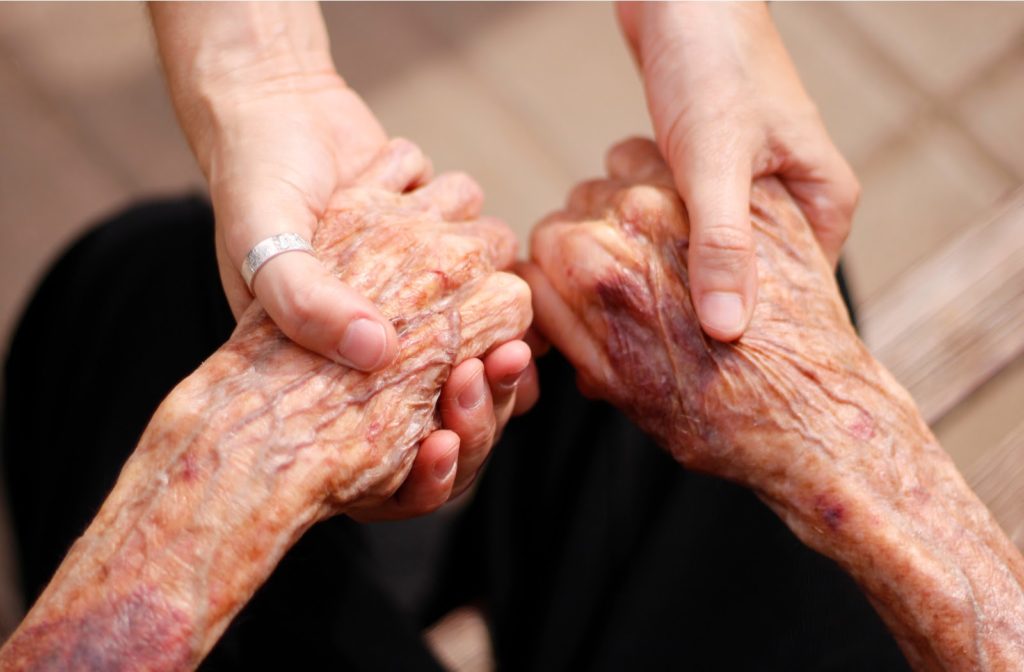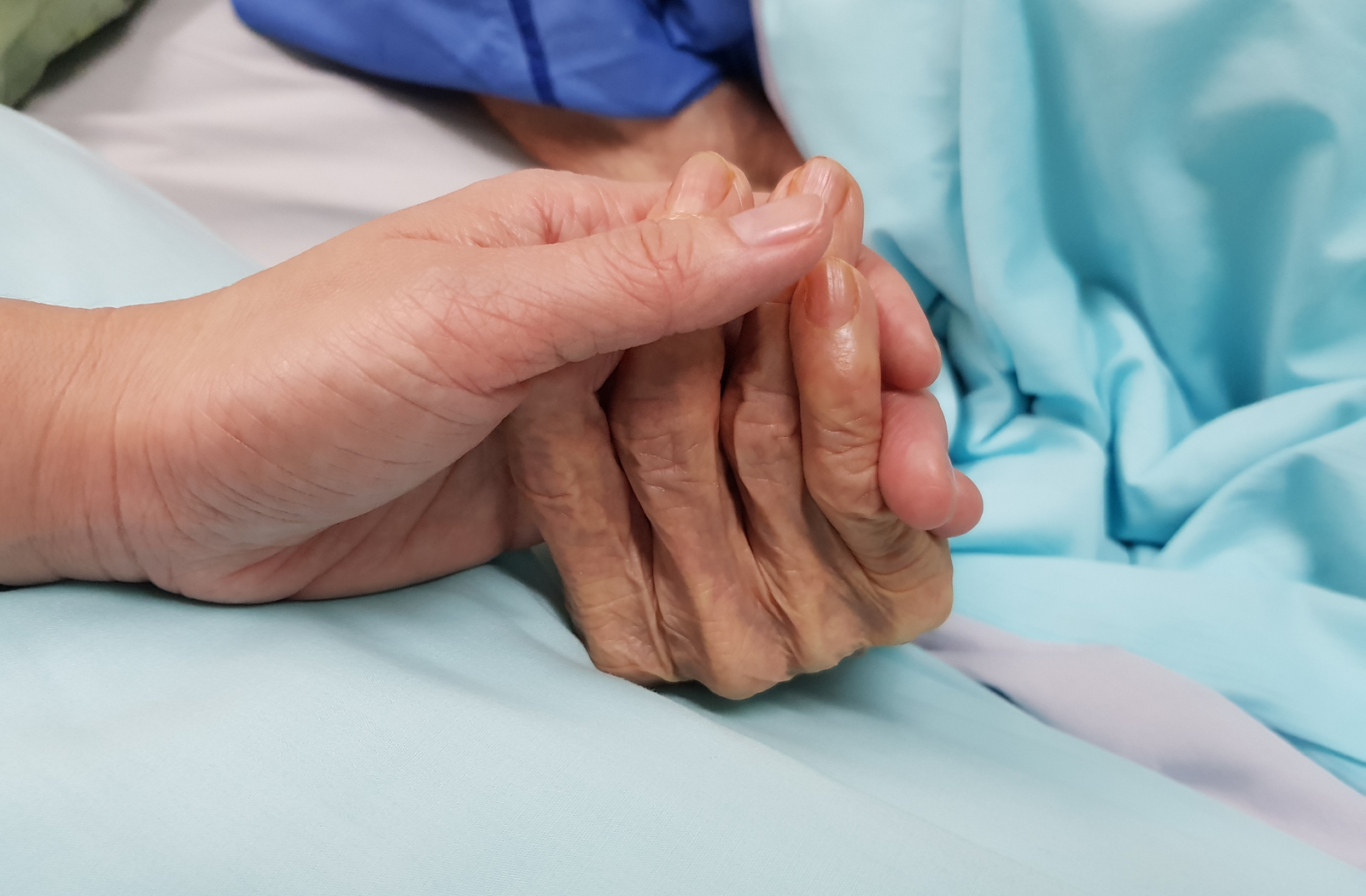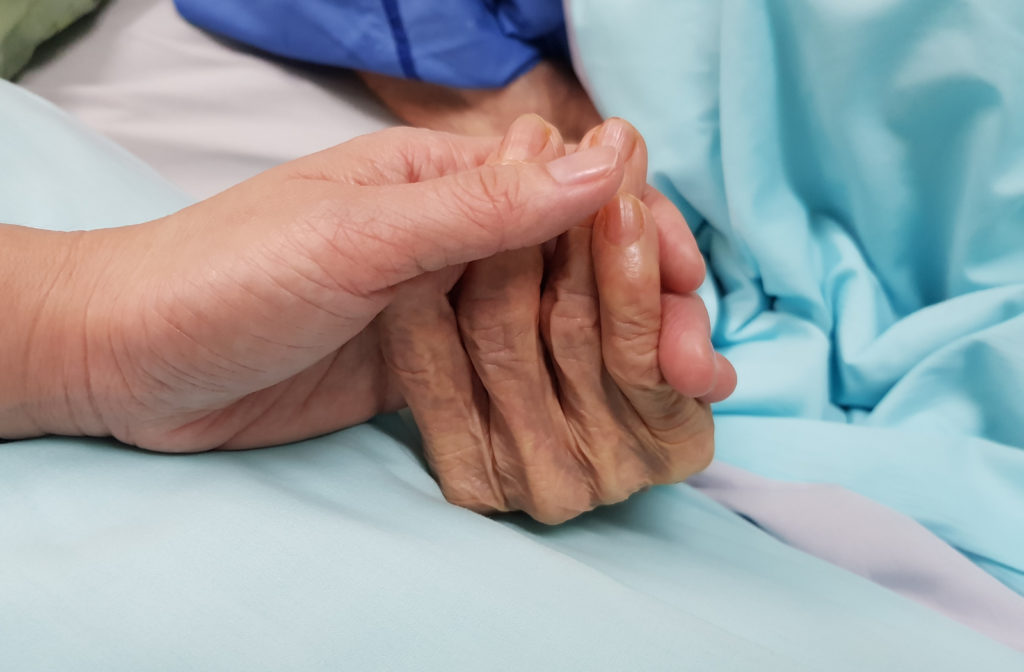The end of a loved one’s life is a heartbreaking experience. The situation can be painful, but it doesn’t have to be for someone whose health is fading. End-of-life care is available for older adults in hospitals, assisted living, or memory care, offering support and empathy during someone’s final periods.
What is end-of-life care? If you have a loved one with declining health, learn more about this care, including what it is and what it provides.
What is End of Life Care?
End-of-life care is unique and specific for each individual. It’s known as the support and medical care given during the time surrounding the end of someone’s life. There is no timeline for how long end-of-life care lasts; someone may need support for weeks, days, or months depending on their health.
The goal of end-of-life care is to provide comfort, care and treat residents with respect. Several different facilities can provide this care, including:
- Hospitals
- Nursing homes
- Assisted living communities
- Memory care communities
With end-of-life care, comfort is vital. Someone staying in a continuing care facility with assisted living or memory care doesn’t need to move to receive care. They can remain in the home they feel comfortable living in.
End-of-life care is a general term. There are two forms of this care, with each providing different levels of support. These end-of-life options are palliative and hospice care.
Palliative Care
Palliative care is for older adults living with a serious illness. It’s specialized medical care meant to enhance a person’s quality of life. The treatment given in palliative care focuses on helping with symptoms and treating illness.
Besides treating symptoms and improving quality of life, palliative care helps patients understand their choices for medical treatment.
This care is beneficial to seniors living with:
While palliative care focuses on comfort and treatment of illness, hospice care focuses solely on comfort.
Hospice Care
Hospice is a consideration for older adults who don’t want to seek treatment or live with a fatal illness. It focuses on care, comfort, and well-being for someone approaching the end of their life.
Similar to palliative care, hospice offers comfort for the individual and support for the family. Hospice differs because there is no attempt to cure or treat a person’s illness.
A medical professional typically recommends hospice when they feel someone has 6 months or less to live, provided the illness runs its natural course.
Both forms of end-of-life care seek to provide comfort for your loved one. What does this care offer?

How End of Life and Palliative Care Can Help You
Physical Comfort
End-of-life situations can cause discomfort and pain depending on your loved one’s condition. Some may feel no pain in the last periods of their life while others may feel discomfort for several reasons. No matter what, end-of-life care aims to provide as much comfort as possible.
Someone in palliative or hospice care may feel discomfort because of:
- Pain
- Breathing issues
- Digestive problems
- Fatigue
- Skin irritation
- Temperature sensitivity
There are a variety of ways to increase comfort depending on what someone needs. If there is pain, staff can increase medications if helpful. Open windows, circulating fans, and humidifiers can help someone with breathing difficulties. Cool compresses and blankets can help with any temperature sensitivity.
Feeling comfortable and as pain-free as possible can make a difference during someone’s end of life.
Management of Mental & Emotional Needs
Mental or emotional distress is common during an end-of-life situation; a loved one with declining health may be anxious or depressed. These feelings may be as painful as physical discomfort.
End-of-life care includes treating emotional pain. Discussing someone’s concerns regarding their passing can help reduce anxiety and fear.
Even simple physical contact can help relieve emotional distress. Holding hands can help someone feel comfortable and reduce negative feelings.
Spiritual Needs
Physical, mental, and emotional needs require care in end-of-life situations, but so do spiritual needs. Spiritual concerns aren’t only related to religion; they can mean finding meaning in life and peace between relationships.
For religious seniors, meeting with a representative of their faith, such as a minister, priest, rabbi, or imam, can provide comfort and ease stress. Other spiritual needs can be spending time with family to discuss relationships and remember fond memories.
No matter what your loved one needs, end-of-life care can provide them with the support they need. Whether someone requires physical, mental, emotional, or spiritual support, they can find comfort in their final periods.
Providing Comprehensive Care & Comfort
Seeing a loved one’s health decline is never easy, but you can make it easier by giving them the care they need. End-of-life care can offer support, treatment, and help for whatever needs someone has.
If you have a loved one who needs a place of comfort and assistance, contact your local residency. No matter the level of care someone needs, they can help.



